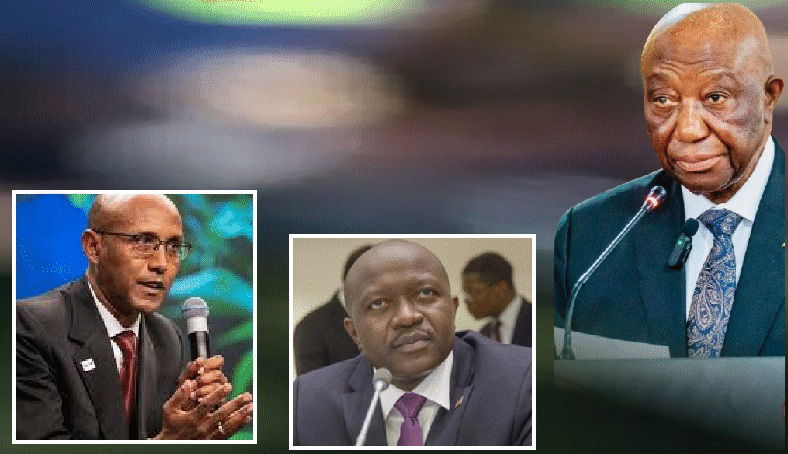A Year of Improving Economic Performance:World Bank Describes Pres. Boakai’s First Year in Office

The World Bank has recognized the first year of President Joseph Nyuma Boakai’s administration, spanning 2024, as a period marked by significant improvements in Liberia’s economic performance, making the country well-positioned for continued international development assistance. This assessment is detailed in the 2025 Africa Country Policy and Institutional Assessment (CPIA) report, which was officially released on Thursday, July 10, 2025, in Monrovia. The report assigns Liberia an average CPIA score of 3.1, a milestone that confirms the country’s eligibility for support under the International Development Association (IDA) framework. This achievement reflects the government’s focused reforms and strategic policy decisions aimed at enhancing fiscal management, monetary stability, and institutional effectiveness. One of the standout features of Liberia’s economic progress, as highlighted by the World Bank, is the administration’s renewed commitment to fiscal discipline. The government took decisive steps to address some of the longstanding challenges affecting the country’s public finances. Key among these were measures to manage the high wage bill, reduce tax expenditures, and curtail costly fuel subsidies. These efforts contributed to a more sustainable budgetary environment and helped build confidence among development partners and investors. By prioritizing these fiscal adjustments, the government has laid a strong foundation for economic stability and growth. “The Boakai administration’s firm stance on fiscal responsibility has been pivotal in enhancing Liberia’s macroeconomic outlook,” noted a senior World Bank economist. “These reforms are crucial to maintaining fiscal sustainability and ensuring that resources are directed toward productive sectors.” The World Bank report further emphasizes Liberia’s success in maintaining a tight monetary policy throughout 2024. The Central Bank of Liberia held a high policy interest rate, which resulted in elevated real interest rates. This policy stance played an important role in driving down the inflation rate to single-digit levels, a development described in the report as a “notable macroeconomic achievement.” By achieving a more stable price environment, the government has enhanced the predictability of the economy, encouraging investment and improving the purchasing power of Liberians. Another area of commendation is Liberia’s progress in expanding financial inclusion. The report highlights the country’s increased adoption of mobile money platforms, which have become a vital tool for delivering financial services to underserved populations, particularly in rural areas. Furthermore, Liberia has initiated the establishment of a modern credit registry, an important development expected to improve access to credit and promote transparency in the lending market. This registry is seen as a key enabler for small and medium enterprises (SMEs) seeking financing, thus supporting private sector growth. “Financial inclusion is a cornerstone for inclusive development,” the report states. “Liberia’s innovative use of technology in this space reflects its commitment to bringing more citizens into the formal financial system.” The World Bank report also acknowledges the significant strides made by the Liberia Revenue Authority (LRA) in enhancing tax administration. The adoption and implementation of the Integrated Tax Administration System (ITAS) and the Automated System for Customs Data (ASYCUDA) have markedly improved efficiency, transparency, and compliance within the tax system. As a result, Liberia has experienced an increase in revenue collection, a critical factor in funding government programs and reducing dependency on external aid. “Improved tax administration has not only expanded the revenue base but has also contributed to strengthening governance and accountability,” the report notes. While the CPIA report commends Liberia’s progress, it also identifies areas requiring continued focus. The government is encouraged to build on these gains by deepening reforms in public sector management, strengthening institutional capacity, and enhancing the business environment to attract further investment. President Boakai’s administration has signaled its commitment to these priorities through ongoing policy initiatives and engagement with international partners. In response to the World Bank report, Acting Minister of Finance and Development Planning, Mr. Anthony Myers, expressed gratitude and optimism. “We are encouraged by the World Bank’s recognition of our efforts and will continue working tirelessly to implement reforms that deliver sustainable growth and improved livelihoods for all Liberians,” Myers stated. “This report validates our commitment to sound economic management and inspires us to aim higher.” The 2025 Africa CPIA report underscores that President Boakai’s first year in office represents a period of promise and momentum for Liberia’s economy. Through strengthened fiscal policies, monetary discipline, financial innovation, and improved tax administration, the country has laid a solid foundation for achieving its development objectives. As Liberia continues on this trajectory, it is well-positioned to harness international support, attract investment, and build a more inclusive and resilient economy for the benefit of all its citizens. Presenting the report in Monrovia, the World Bank’s Chief Economist for Africa, Andrew Dabalen, commended Liberia for its upward trajectory but emphasized the importance of sustained reforms. “Liberia’s progress in key areas such as monetary policy and tax administration is commendable, yet challenges remain in public sector governance,” said Dabalen. “Strengthening institutions and promoting transparency will be crucial to ensure Liberia’s development gains are sustainable.”


